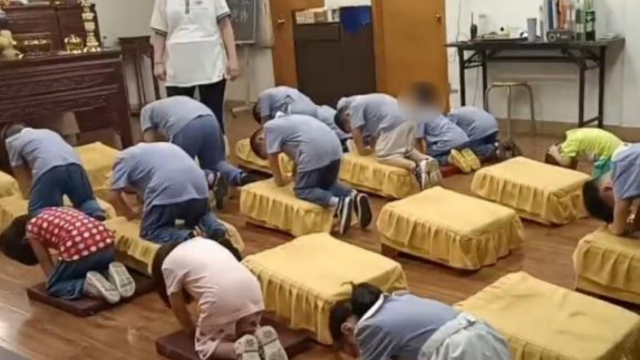The center will teach lawyers, policymakers and journalists how to stop Beijing targeting its dissidents overseas.

By Jing Wei for RFA Mandarin
An overseas rights group is fighting back against China’s “long-arm” pursuit of dissidents and activists in exile with a free legal advice service.
The Spanish-based group Safeguard Defenders, which has previously warned the world about China’s secret police stations, its network of “consular volunteers” and its targeting of dissidents and activists overseas, has now launched a “one-stop shop” legal advice center to help fight transnational repression by Beijing.
The group’s Information and Help Center is “a one-stop shop primarily aimed at legal practitioners defending individuals from extraditions to China,” but also contains information for use by government officials and journalists, according to its website.
Launched on Feb. 13, the resource center offers help in all six United Nations languages based on the group’s experience in countering extraditions and deportations to China, including appeals to district, appeal and Supreme court level, as well as input from academics specializing in the Chinese criminal justice system.
The group claims a 100% success rate in assisting to block extraditions and deportations in cases it has been directly involved in.
“This new help center is a potential game changer, as it makes incredibly detailed information about China, in particular as it relates specifically to extradition issues, available, for free, in a variety of languages, for all legal counsel as well as the targets themselves,” the group said in a statement launching the center.
Such information was previously only available to people with the means to hire specialized lawyers, it said.
It called on all jurisdictions to end extraditions to China, an issue which sparked a mass popular uprising in Hong Kong in 2019.
“Considering the state of the Chinese criminal justice system, extradition requests should fail when tested against international legal commitments,” Safeguard Defenders said. “Whenever they are approved, those very norms and institutions are weakened. To protect the Rule of Law, extraditions to China must end.”
It added: “It should be up to China to improve its commitment to legally binding minimum standards if it wants the benefits of extradition cooperation, not for the rest of the world to lower theirs.”
China’s extradition treaties
Ma Ju, a Chinese Muslim scholar living in the United States, said China has long made use of international legal mechanisms to pursue dissidents overseas.
“The former president of Interpol was previously the vice minister of public security,” Ma said. “During that period … China took advantage of certain agreements between international organizations to carry out their transnational repression.”
“They have kept a slightly lower profile in the past couple of years, but they haven’t slowed their pace,” he said.
State media reported recently that China now has 60 extradition treaties with foreign jurisdictions across Europe, Africa, Australia, and North and South America, some 40% of which were concluded after ruling Chinese Communist Party leader Xi Jinping took power in 2012.
Since 2012, the country has successfully extradited more than 400 people, according to a China News Service report citing Ma Xinmin, Director of the Treaty and Law Department at the Chinese Ministry of Foreign Affairs.
Ma Ju cited the repatriation of Chinese human rights lawyer Lu Siwei from neighboring Laos in 2023, which prompted an international outcry.
He welcomed the Safeguard Defenders help center, saying it was sorely needed.
“A lot of countries, including those in Europe and the United States, aren’t yet fully aware of the many facets of China’s transnational repression, or its use of extradition and other methods to target dissidents and ethnic or sexual minorities, any opponents,” Ma said.
“The agreements it has signed still serve the needs of the authoritarian and dictatorial Chinese government.”
Chinese rights attorney Lu Siwei was repatriated to China last September after being arrested in Laos en route to join his family in the United States, along with dozens of other Chinese nationals, activists and relatives said at the time.
U.S.-based rights lawyer Wu Shaoping said the effectiveness of the information center had yet to be tested in practice, but said it would be a “blessing” for anyone being persecuted by China while in another country.
“At least people will be able to provide them with more professional services to prevent them from being extradited by Beijing,” Wu said. “It gives many people threatened with extradition an extra layer of protection.”
Translated by Luisetta Mudie. Edited by Roseanne Gerin.
Source: Copyright © 1998-2016, RFA. Used with the permission of Radio Free Asia, 2025 M St. NW, Suite 300, Washington DC 20036. https://www.rfa.org.












